#health of enamel and gums
Explore tagged Tumblr posts
Text
fucking around with makeup for nerd reasons at my desk and pointing bright LEDs right at my own face and looking at it kinda close up gave me an exceptionally clear look at my teeth and anyway I wanna die
#I have been. one of those 'my dental hygiene suffers with my mental health' people for the last several of years and#I have a dentist appointment on the 17th#and the emotional pull right now between 'I need to go NOW' and 'I would rather bury myself alive than face them' is. powerful#I've always had really healthy teeth even as a little kid who had bad brushing habits because I think I just have really thick enamel#but :) if you don't regularly brush your teeth :) it affects your gums and if they recede there's less enamel on the exposed tooth surfaces#ANYWAY I WOULD LIKE TO DIE NOW PLEASE#I've never even had A Filling I really sincerely have no context for how bad it actually is#it feels bad. I don't know. I haven't been to a dentist in like ten years because navigating insurance felt too intimidating#lays on the floor#curls into a ball#about me
3 notes
·
View notes
Text
#Tooth decay#Dental caries#Plaque buildup#Tooth enamel erosion#Fillings#Oral hygiene#Preventing cavities#Dental health#Sugar and tooth decay#Gum Disease:#Gingivitis#Periodontal disease#Gum infection#Plaque and tartar#Gum inflammation#Periodontitis#Oral health#Gum bleeding#Dental hygiene and gum care#Healthy gums
1 note
·
View note
Text
How Coffee Affects Your Teeth: Understanding the Impact of Your Daily Brew
Coffee is one of the most beloved beverages around the world. Whether it’s part of your morning routine or an afternoon pick-me-up, it’s estimated that over 2 billion cups of coffee are consumed globally every day (International Coffee Organization, 2023). While coffee has its benefits, including boosting alertness and energy, it can have negative effects on your oral health, particularly your…
#coffee acid teeth#coffee and cavities prevention#coffee and enamel erosion#coffee and gum health#coffee dry mouth#coffee enamel protection#coffee oral health#coffee teeth sensitivity#coffee teeth stains#dental-care#dental-health#dental-hygiene#diet#effects of coffee on teeth#enamel erosion coffee.#health#low-acid coffee teeth#oral hygiene coffee drinkers#oral-health#oral-hygiene#prevent coffee stains teeth#teeth discoloration coffee
0 notes
Text
ProDentimSupplements - Health

ProDentim is a dietary supplement designed to support oral health and promote a balanced microbiome in the mouth. Combining a unique blend of probiotics and natural ingredients, ProDentim aims to enhance the health of teeth and gums while freshening breath. The formula is crafted to help maintain a healthy balance of bacteria in the oral cavity, which can improve overall dental wellness and potentially reduce the risk of dental issues
Get this product naw
#Oral Health#Dental Supplement#ProDentim Benefits#Teeth Whitening#Gum Health#Natural Ingredients#Cavity Prevention#Bad Breath Solution#Plaque Fighter#Tooth Enamel Support#Fresh Breath#Probiotic Supplement#Mouth Care#Oral Hygiene#Dental Care Formula#Strong Teeth#Healthy Gums#Sugar-Free Supplement#Chewable Tablets#Holistic Oral Care
1 note
·
View note
Text
7 Signs you have Healthy Teeth

A healthy smile is more than just a cosmetic concern - it's a key indicator of overall health and wellbeing.
At Capture Life Dental Care, we believe that a healthy smile is a vital part of living a happy and fulfilling life. But how do you know if you have healthy teeth?
In this blog, we'll explore the top 7 signs that indicate you have healthy teeth, from strong enamel to fresh breath.
1. Strong Enamel
Healthy teeth have strong, durable enamel that resists decay and sensitivity. If your teeth are resistant to temperature changes and sugary snacks, it's a good sign that your enamel is strong. You can test your enamel by trying a cold drink or a sweet treat - if you don't experience any discomfort or pain, your enamel is likely in good shape.
2. Pink, Healthy Gums
Pink, healthy gums are a key indicator of healthy teeth. If your gums are pink, firm, and don't bleed when you brush or floss, it's a good sign that you're taking good care of your teeth. Healthy gums are essential for supporting your teeth and preventing gum disease.
3. Fresh Breath
Fresh breath is a sign of healthy teeth and gums. If you don't experience bad breath or a sour taste in your mouth, it's likely that your teeth and gums are healthy. Fresh breath is also a sign of good oral hygiene habits, such as regular brushing and flossing.
4. No Sensitivity
If your teeth are sensitive to hot or cold temperatures, it could be a sign of underlying problems such as tooth decay or gum recession. But if you don't experience any sensitivity, it's a good sign that your teeth are healthy and strong.
5. No Pain or Discomfort
Healthy teeth don't hurt or ache. If you don't experience any pain or discomfort when eating, drinking, or biting, it's a good sign that your teeth are healthy. Pain or discomfort can be a sign of underlying problems such as tooth decay, cracks, or gum disease.
6. Shiny, Clean Teeth
Shiny, clean teeth are a sign of good oral hygiene habits. If your teeth are free of plaque, tartar, and stains, it's a good sign that you're taking good care of your teeth. Shiny teeth are also a sign of healthy enamel and a balanced diet.
7. Regular Check-Ups
Finally, regular check-ups with your dentist are a sign of healthy teeth. If you're visiting your dentist regularly and receiving clean bills of health, it's a good sign that you're taking proactive steps to maintain your oral health.
Conclusion
In conclusion, healthy teeth are a key indicator of overall health and wellbeing. By looking out for these 7 signs, you can ensure that your teeth are strong, healthy, and functioning properly.
At Capture Life Dental Care, we're dedicated to helping you achieve a healthy, happy smile.
Contact us today to schedule a consultation and take the first step towards a healthier, happier you!
#Banjara Hills Dentist#Best Dental Care Clinic#Best Dental Care Clinic Hyderabad#Best Dentist in Hyderabad#Capture Life Dental Care#Dental Care#Dental Care In Banjara Hills#Dental Health#Dental Implants Hyderabad#Dental Specialists Banjara Hills#dental wellness#Dentist Banjara Hills#Dentist Hyderabad#fresh breath#Healthy Smile#healthy teeth#maintaining oral health#no dental pain#no tooth sensitivity#Oral Hygiene#pink gums#Regular Dental Check-ups#shiny teeth#signs of healthy teeth#strong enamel
0 notes
Text
DentaTonic | Supplements - Health
A Scientific Evaluation of DentaTonic: A Dietary Supplement for Oral Health
Dentists and hygienists recommend a consistent regimen of brushing, flossing, and regular checkups to maintain optimal oral health. However, recent research suggests that certain dietary supplements may offer additional support. DentaTonic, a formulation containing a blend of enzymes and minerals, has gained traction for its potential to promote comprehensive oral health. Let's explore the scientific basis behind its key ingredients.
Enzyme Activity for a Balanced Microbiome
DentaTonic incorporates a trio of enzymes: lactoperoxidase, lysozyme, and dextranase. Lactoperoxidase, naturally present in saliva, plays a critical role in the body's oral defense system. Studies indicate its ability to inhibit the growth of harmful bacteria associated with plaque formation and potential decay [1]. Lysozyme functions as a natural antimicrobial agent, further targeting bacteria within the oral cavity [2]. Dextranase disrupts complex sugars, a primary food source for plaque-forming bacteria [3]. By influencing the oral microbiome, DentaTonic may contribute to a healthier environment for teeth and gums.
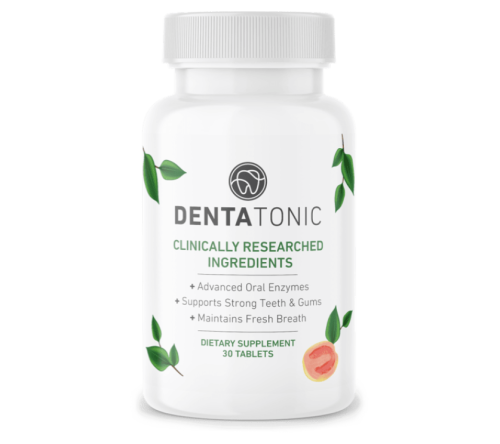
Potential for Enamel Remineralization
Microcrystalline hydroxyapatite, another key component of DentaTonic, is a form of calcium phosphate that mirrors the mineral structure of tooth enamel. Research suggests it may possess remineralizing properties, potentially aiding in the repair of early enamel erosion [4]. This could be particularly beneficial for individuals prone to sensitivity or early signs of decay.
A Promising Ally in Oral Care
While further clinical trials are necessary to definitively establish DentaTonic's full range of benefits, the scientific evidence supporting its individual ingredients is encouraging. By potentially promoting a healthy oral microbiome, fostering remineralization, and inhibiting plaque formation, DentaTonic may offer a valuable complement to established dental hygiene practices. It is crucial to emphasize that DentaTonic should not be considered a substitute for regular dental checkups and professional cleanings.
Citations:
汤永华, ... & 焦树武. (2000). 过氧化物酶系统在口腔疾病防治中的作用. 口腔医学杂志, 20(2), 81-83. [Tang YH, et al. (2000). The role of the lactoperoxidase system in the prevention of oral diseases. Oral Med J, 20(2), 81-83.]
Hutt, M. N., et al. (1960). Lysozyme in human tears. Nature, 186(4723), 888-889.
Koo, H., et al. (2003). Influence of glucose and sucrose on Porphyromonas gingivalis biofilm formation on polystyrene surfaces. Journal of dental research, 82(2), 136-141.
Reynolds, E. C. (1997). The role of calcium phosphate in enamel remineralization. The Journal of clinical dentistry, 8(2), 72-79.

#Oral Microbiome Support (highlights the impact on bacteria)#Enzyme-Powered Plaque Reduction (emphasizes the role of lactoperoxidase#lysozyme#and dextranase)#Microcrystalline Hydroxyapatite for Remineralization (focuses on the scientific name for the key mineral)#Clinically Studied Ingredients (transparency around ongoing research)#Dentist-Recommended Supplement (positions DentaTonic as complementary to professional care)#Ditch the Gum#Embrace DentaTonic (playful and memorable)#Level Up Your Oral Health Game (trendy and youth-oriented)#Science-Backed Smile Support (combines scientific backing with benefit)#The Future of Oral Care is Here (creates a sense of innovation)#Naturally Powered Healthy Smile (highlights natural ingredients)#pen_spark#tune#share#more_vert#Healthy Gums & Strong Teeth#Fresh Breath Confidence#Supports Enamel Repair#Dental Hygiene Booster#Natural Oral Care Solution#Enzyme-Powered Plaque Control#Microbiome-Friendly Formula#Clinically Studied Minerals#Dentist-Recommended Supplement#Sugar-Free & Safe for Teeth#Supports Digestive Health (indirectly#through promoting a healthy oral microbiome)#Fresh Breath Starts in the Gut (emphasizes the link between gut health and bad breath)
0 notes
Text
Revolutionizing Oral Health
Introduction:
In the quest for healthier teeth and gums, innovations in dental care continue to evolve. Among these advancements, thermal calcium stands out as a game-changer. Renowned for its ability to fortify teeth, protect enamel, and promote gum health, thermal calcium represents a breakthrough in oral hygiene. Combining the benefits of calcium with refreshing mint flavor and the natural properties of cloves, this remarkable compound offers a holistic approach to dental wellness. In this blog post, we'll delve into the science behind thermal calcium and explore how it can transform your dental care routine.
You can also use This Product for better results
Understanding Thermal Calcium:
Thermal calcium, also known as heat-treated calcium carbonate, undergoes a unique process that enhances its effectiveness in dental applications. This specialized treatment not only increases the bioavailability of calcium but also imbues it with remarkable thermal stability. As a result, thermal calcium exhibits superior resistance to acidic environments, making it an ideal choice for combating dental erosion and enamel degradation.
You can also use This Product for better results
The Role of Thermal Calcium in Dental Health:
One of the primary benefits of thermal calcium is its ability to strengthen teeth and protect enamel. Enamel, the outermost layer of the teeth, plays a crucial role in safeguarding against decay and sensitivity. However, factors such as acidic foods, plaque buildup, and bacterial activity can compromise enamel integrity, leading to erosion and decay. Thermal calcium forms a protective barrier over the enamel, shielding it from acid attacks and preserving its structural integrity. With regular use, thermal calcium helps maintain strong, resilient teeth, reducing the risk of cavities and enamel erosion.
Furthermore, thermal calcium promotes gum health by fortifying the underlying structures that support the teeth. Weak or receding gums can contribute to various oral health issues, including gum disease and tooth loss. By stimulating gum tissue regeneration and enhancing blood circulation, thermal calcium promotes healthier gums, reducing inflammation and minimizing the risk of gum-related complications.
You can also use This Product for better results
The Refreshing Fusion of Mint Flavor and Clove Extract:
In addition to its dental benefits, thermal calcium offers a refreshing oral experience thanks to its mint flavor and clove extract infusion. Mint, renowned for its cooling sensation and breath-freshening properties, leaves your mouth feeling invigorated and rejuvenated after each use. Moreover, the natural antibacterial properties of mint help combat odor-causing bacteria, ensuring long-lasting freshness throughout the day.
Clove extract, derived from the aromatic flower buds of the clove tree, contributes to the overall efficacy of thermal calcium. Rich in eugenol, a compound known for its analgesic and antiseptic properties, clove extract helps alleviate tooth sensitivity, reduce pain, and combat oral bacteria. Additionally, clove extract contains antioxidants that promote oral health by neutralizing free radicals and reducing inflammation.
The Result: Stronger Teeth, Healthier Gums, and Radiant Smiles:
With regular use of thermal calcium toothpaste, customers can expect a multitude of benefits that translate into improved oral health and confidence. Stronger teeth, fortified enamel, and healthier gums form the foundation of a radiant smile that exudes vitality and well-being. Say goodbye to dental woes such as sensitivity, decay, and gum disease, and embrace a brighter future with thermal calcium.
You can also use This Product for better results
Conclusion:
In conclusion, thermal calcium represents a groundbreaking advancement in dental care, offering a holistic solution for stronger teeth and healthier gums. By harnessing the power of calcium, mint flavor, and clove extract, thermal calcium toothpaste provides comprehensive protection against enamel erosion, decay, and gum disease. Elevate your oral hygiene routine with thermal calcium and experience the transformative benefits of a radiant smile and lasting dental wellness.
Disclaimer:
This Blog contains affiliates Links
0 notes
Text
The Secret to a Healthy Smile: How Neglect Can Impact You.
🌟 Say goodbye to dental woes! Colgate's innovative oral care products are here to save the day. Get ready for a brighter, healthier smile that'll make everyone go 😃❤️ #ColgateCares #SmileBrighter
As a busy adult, it’s crucial to prioritise good oral hygiene for overall well-being. Neglecting oral health can lead to problems such as bad breath, cavities, gum disease, and tooth sensitivity. Fortunately, Colgate has developed a new line of oral care products to address these concerns. In this article, I’m excited to share my discovery with you. Colgate® Optic White O2 Whitening…
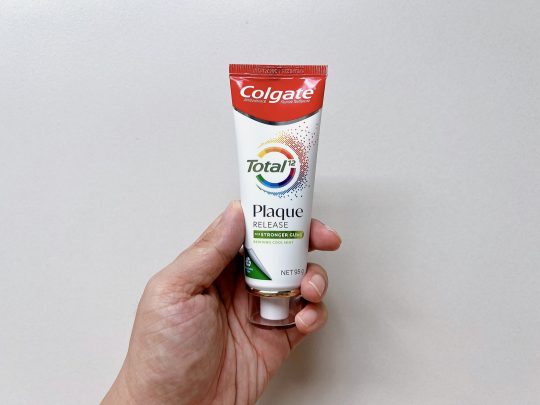
View On WordPress
#busy adults#Colgate#comprehensive oral care#dental hygiene#good oral hygiene#gum health#innovative oral care#maintain oral health#oral care products#oral health#plaque removal#professional image#sensitive toothpaste#teeth whitening#tooth sensitivity#tooth sensitivity relief#toothpaste for enamel repair#whitening toothpaste
0 notes
Text

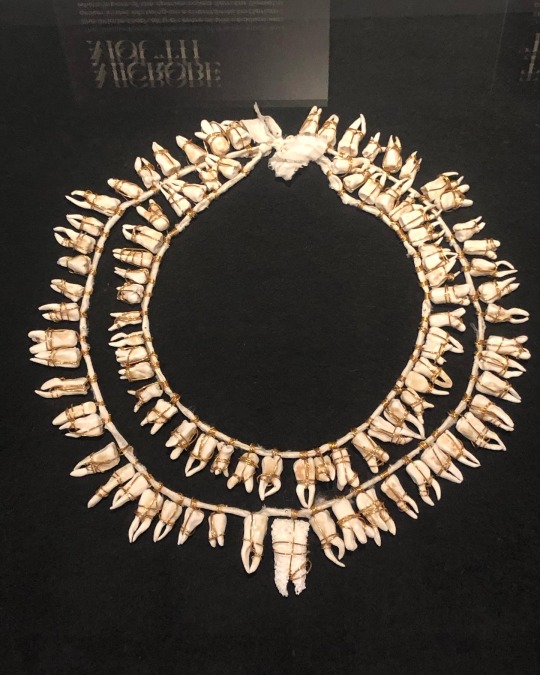



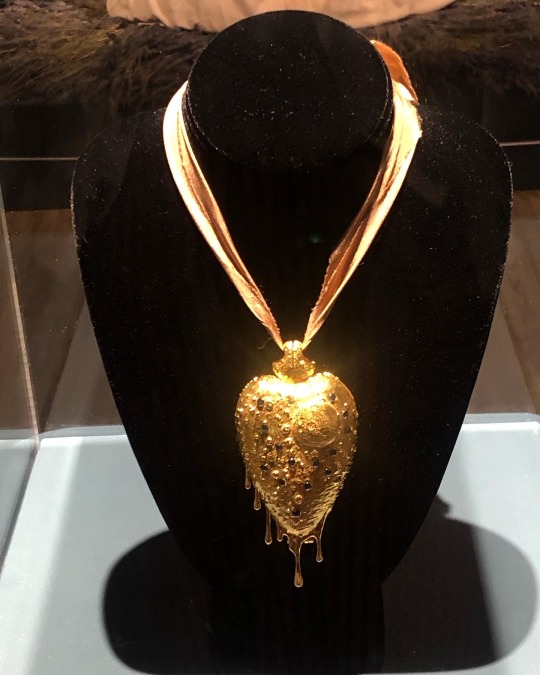
‘Fragile Microbiomes’ by bio-artist Anna Dumitriu
1. SYPHILIS DRESS- This dress is embroidered with images of the corkscrew-shaped bacterium which causes the sexually transmitted disease syphilis. These embroideries are impregnated with the sterilised DNA of the Nichols strain of the bacterium - Treponema pallidum subsp. pallidum - which Dumitriu extracted with her collaborators.
2. MICROBE MOUTH- The tooth at the centre of this necklace was grown in the lab using an extremophile bacterium which is part of the species called Serratia (Serratia N14) that can produce hydroxyapatite, the same substance that tooth enamel is made from.
The handmade porcelain teeth that make up this necklace have been coated with glazes derived from various bacterial species that live in our mouths and cause tooth decay and gum disease, including Porphyromonas gingivalis, which can introduce an iron-containing light brown stain to the glaze.
3. TEETH MARKS: THE MOST PROFOUND MYSTERY- In his 1845 essay “On Artificial Teeth”, W.H. Mortimer described false teeth as “the most profound mystery” because they were never discussed. Instead, people would hide the stigma of bad teeth and foul breath using fans.
This altered antique fan is made from animal bone and has been mended with gold wire, both materials historically used to construct false teeth (which would also sometimes incorporate human teeth). The silk of the fan and ribbon has been grown and patterned with two species of oral pathogens: Prevotella intermedia and Porphyromonas gingivalis. These bacteria cause gum disease and bad breath, and the latter has also recently been linked to Alzheimer’s disease.
4. PLAGUE DRESS- This 1665-style 'Plague Dress' is made from raw silk, hand-dyed with walnut husks in reference to the famous herbalist of the era Nicholas Culpeper, who recommended walnuts as a treatment for plague. It has been appliquéd with original 17th-century embroideries, impregnated with the DNA of Yersinia pestis bacteria (plague). The artist extracted this from killed bacteria in the laboratory of the National Collection of Type Cultures at the UK Health Security Agency.
The dress is stuffed and surrounded by lavender, which people carried during the Great Plague of London to cover the stench of infection and to prevent the disease, which was believed to be caused by 'bad air' or 'miasmas'. The silk of the dress references the Silk Road, a key vector for the spread of plague.
5. BACTERIAL BAPTISM- based on a vintage christening gown which has been altered by the artist to tell the story of research into how the microbiomes of babies develop, with a focus on the bacterium Clostridioides difficile, originally discovered by Hall and O’Toole in 1935 and presented in their paper “Intestinal flora in new-born infants”. It was named Bacillus difficilis because it was difficult to grow, and in the 1970s it was recognised as causing conditions from mild antibiotic-associated diarrhoea to life-threatening intestinal inflammation. The embroidery silk is dyed using stains used in the study of the gut microbiome and the gown is decorated with hand-crocheted linen lace grown in lab with (sterilised) C. difficile biofilms. The piece also considers how new-borns become colonised by bacteria during birth in what has been described as ‘bacterial baptism’.
6. ZENEXTON- Around 1570, Swiss physician and alchemist Theophrastus Paracelsus coined the term ‘Zenexton’, meaning an amulet worn around the neck to protect from the plague. Until then, amulets had a more general purpose of warding off (unspecified) disease, rather like the difference today between ‘broad spectrum’ antibiotics and antibiotics informed by genomics approaches which target a specific organism.
Over the next century, several ideas were put forward as to what this amulet might contain: a paste made of powdered toads, sapphires that would turn black when they leeched the pestilence from the body, or menstrual blood. Bizarre improvements were later made: “of course, the toad should be finely powdered”; “the menstrual blood from a virgin”; “collected on a full moon”.
This very modern Zenexton has been 3D printed and offers the wearer something that genuinely protects: the recently developed vaccine against Yersinia pestis, the bacterium that causes plague.
#my favourite pieces from this exhibition that I visited last month at the Thackray medical museum in Leeds#absolutely fascinating reading about the process and meanings behind these works#mine#anna dumitriu#works
2K notes
·
View notes
Text
Xylitol is a natural sugar alcohol that boasts numerous benefits for dental health.
Unlike regular sugar, xylitol doesn't fuel the bacteria in your mouth that cause tooth decay. Instead, it disrupts their ability to adhere to teeth, reducing plaque formation and the risk of cavities.
Additionally, xylitol stimulates saliva production, which helps neutralize acids and re-mineralize enamel, promoting stronger teeth.
Incorporating xylitol into your oral care routine, whether through chewing gum, mints, or toothpaste, can contribute to healthier teeth and gums.
So next time you reach for a sweet treat, consider the dental benefits of xylitol and indulge guilt-free in its cavity-fighting properties. 🤔
#pay attention#educate yourselves#educate yourself#knowledge is power#reeducate yourself#reeducate yourselves#think about it#think for yourselves#think for yourself#do your homework#do some research#do your own research#ask yourself questions#question everything#dental issues#cavities#for your health#health tips#healthy living#natural remedies
343 notes
·
View notes
Text
two months ago I got my teeth cleaned by a dental hygienist who (1) scolded me for not flossing and told me I could miscarry if I didn't take care of my gums (2) answered that tooth enamel was as hard as diamond when I asked a question about the relative hardness of enamel and the scraping tools
I was displeased by both of these but when I relayed this to my friends they all focused on (1). to my dismay. one person said this was phrased in a way that some patients won't be able to contextualize (hearing "you will miscarry" instead of "a very small increase in miscarriage risk") and would get anxious about. I agree this was phrased in a kinda misleading way but it at least could be technically true (googling shows the usual morass of pregnancy correlations – it's unclear what the real nature of the periodontitis & fetal health connection is)
(2) is the one that really got to me. to me (1) indicates "this person is annoying and bad at communication". but (2), to me, says "something went pretty wrong in this person's reasoning abilities for those works to come out of their mouth, and I am opposed to putting myself as a patient in their care"
(crucially, I got the possibly-wrong impression that she wouldn't have cared or thought it mattered had I started arguing with her about the hardness of tooth enamel and showing her google results)
anyway I did take seriously her assessment that my gums are in bad shape and called to make another appointment for a cleaning. I specified to the front desk person that I didn't want to be seen by that hygienist in particular. They said she was the only hygienist they had, so I decided to just not see her again and hung up
I did consider explaining why I didn't want to see that hygienist again (they didn't ask, but paused in a way that could have been an invitation to get into it) but decided not to because my expectations are that
if I talk about just the tooth enamel hardness thing, they'll think I'm kind of nuts, and take the complaint at a seriousness 2/10
if I talk about both things, they'll take the tooth enamel complaint at seriousness 4/10 (bolstered by its companion) and the miscarriage comment at a seriousness 7/10
and I disliked that second outcome, because if the clinic does act on my complaint, I expect them to come down on her for the wrong-feeling-to-me thing, in a wrong-feeling-to-me way
59 notes
·
View notes
Text

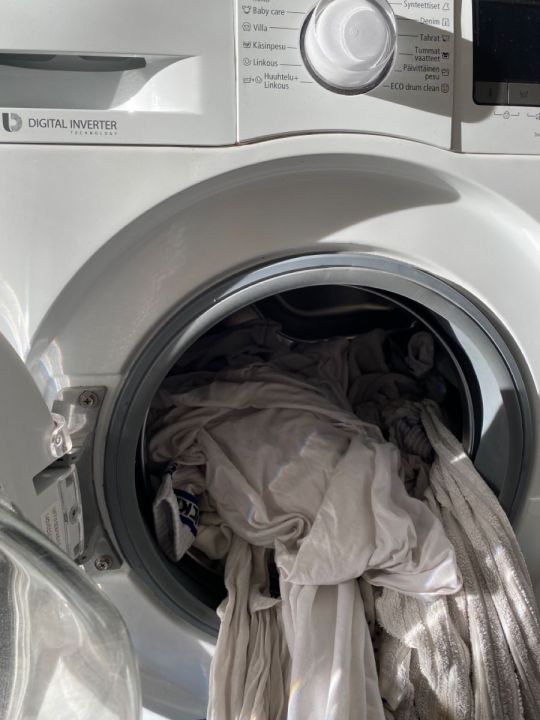
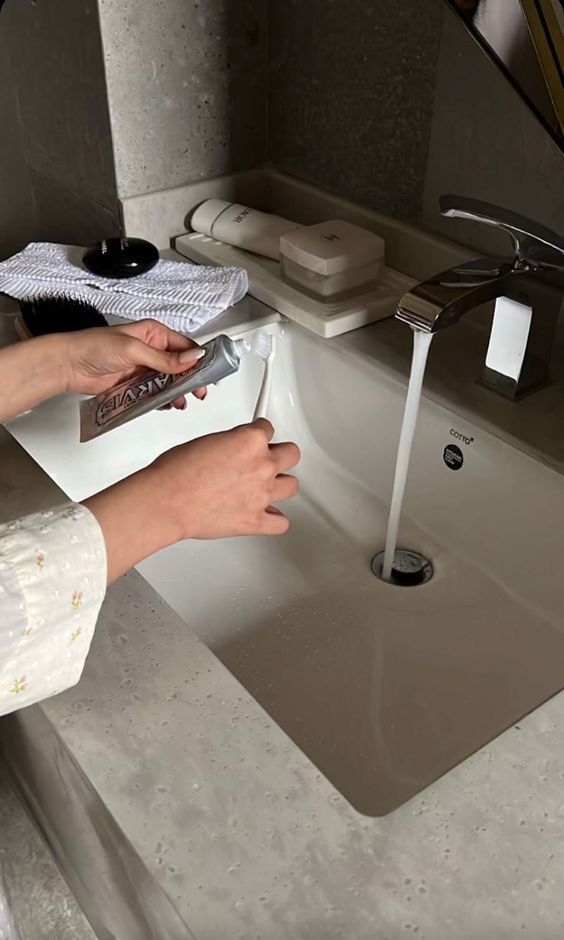
oral hygiene
perhaps since i am a bit younger than most of the people on this app, or since my nana had owned a kindergarten, i am so aware of the importance of hygiene and health practices. i feel that everyone has put simple things like this on the back burner, since covid, since the internet's takeover.
i remember, when i was younger (2015/16ish) (note: i clearly wasn't in kindergarden at the time, but this is when the memories are from), the halls of my nanas kindergarten were lined with posters that encouraged parents to look after their child's health. current kindergartens, and parents--perhaps due to technology and widespread knowledge-- prioritize other things. it's about time we took responsibility of our own health again.
oral hygiene is the practice of keeping your mouth clean and disease-free. it involves brushing and flossing your teeth as well as visiting your dentist regularly for dental x-rays, exams and cleanings.
brushing your teeth: ✩ use fluoride toothpaste to protect your teeth from decay (cavities). fluoride strengthens the tooth's hard outer surface (enamel). ✩ angle the bristles toward the gumline to clean between the gums and teeth. ✩ brush gently using small, circular motions. avoid scrubbing back and forth too hard. ✩ brush all sides of each tooth, including your tongue. ✩ replace your toothbrush when the bristles become worn.
HOT TIP: if you get bored with, or struggle to remember brushing your teeth, consider swapping to a minter (or other pleasantly flavoured) toothpaste. this will encourage you to continue the habit, since it is more enjoyable.
flossing your teeth: ✩ plaque can build up between teeth, leading to gum irritation and gingivitis. ✩ floss daily to remove plaque from these areas. ✩ if plaque hardens into tartar, only a dentist or dental hygienist can remove it.
replacing your toothbrush: ✩ as you use your toothbrush, the bristles gradually wear down. bent or frayed bristles lose their stiffness and effectiveness in cleaning your teeth. ✩ over time, your toothbrush accumulates bacteria from your mouth. bacterial growth on an old toothbrush can contribute to oral infections and bad breath. ✩ you should replace your toothbrush when you notice that the bristles have become worn, or every 3-4 months to prevent the buildup of harmful bacteria.
storing your toothbrush: ✩ before and after brushing, thoroughly rinse the bristles of your toothbrush under hot tap water. this helps remove toothpaste residue, debris, and any airborne bacteria or dust particles. ✩ after rinsing, tap the handle of your toothbrush against the edge of the sink to shake off excess water. this promotes faster air drying and prevents bacterial growth. ✩ store your toothbrush in a cup or holder. keep the bristles up and the handle down. this allows excess water to drain away from the bristles, preventing bacteria buildup. ✩ place the cup or holder in a well-ventilated area, such as a counter or shelf. avoid storing it in a dark, enclosed space like a drawer or cabinet. allowing your toothbrush to air dry completely helps prevent bacterial growth. ✩ avoid cross-contamination by keeping your toothbrush separate from your housemates, or family members.
electric toothbrushes: ✩ some may choose to use electric toothbrushes, where you only replace the head of the toothbrush. electric toothbrushes use oscillating, rotating, or sonic movements to clean teeth and gums more thoroughly. many models have built-in timers to ensure you brush for the recommended 2 minutes. most electric toothbrushes are rechargeable, reducing waste from disposable batteries. ✩ personally, i prefer to use a regular toothbrush, since i feel it does a better job cleaning my mouth. often electric toothbrushes require you to take longer to brush your teeth.
eating choices: eating choices play a significant role in maintaining good oral health. first and foremost, consuming sugary foods and drinks can lead to increased acid production in the mouth. this acid can erode tooth enamel, making your teeth more susceptible to decay. it's essential to limit your intake of sugary snacks and beverages to protect your oral health.
frequent snacking, especially on sugary and acidic drinks throughout the day can harm your teeth. aim for regular meals rather than constant snacking to give your teeth time to recover between eating episodes.
staying hydration is crucial for overall health, including oral health. dry mouth (which is called xerostomia) can increase the risk of cavities and gum disease. salvia helps neutralize acids and wash away food particles, so drink plenty of water to keep your mouth moist.
remember to maintain a balanced diet, rich in vitamins and minerals. it is essential for healthy teeth and gums. nutrients like calcium, vitamin D, vitamin C, and phosphorus contribute to strong teeth and support gum health. include dairy products, leafy greens, fruits, and lean proteins in your diet.
to conclude: remember that good oral health allows you to enjoy life by speaking clearly, tasting, chewing, and showing your feelings through facial expressions like smiling!
further reading: ✩ What’s the Most Sanitary Way to Store Your Toothbrush? • Brilliant Oral Care✩The Best Way to Store Your Toothbrush & the Mistakes You May be Making | Gentle Dental (interdent.com)✩Whatever You Do, Don't Store Your Toothbrush Here - CNET✩Why Should You Replace Your Toothbrush? And When? – Mouth Watchers✩How Often Should You Change Your Toothbrush? Healthy Etiquette (healthline.com)✩When To Change Your Toothbrush | Colgate®✩Oral Hygiene | National Institute of Dental and Craniofacial Research (nih.gov)✩Oral Hygiene: Best Practices & Instructions for Good Routine (clevelandclinic.org)
i hope this post was helpful!
❤️ nene
#elonomh#elonomhblog#that girl#becoming that girl#student#productivity#student life#academia#chaotic academia#study blog#wellness#health and wellness#wellness aesthetic#wellness and health#wellness girl#wellness moodboard#wellnessjourney#mental wellness#beauty and wellness#healthylifestyle#wellbeing#healthtips#it girl#it girl aesthetic#it girl energy#pinterest girl#girl blogging#girl blogger#girlblog#hygine
73 notes
·
View notes
Text
Fun Facts in Dental Care: Surprising Insights for a Healthier Smile
Maintaining good dental health is an essential part of overall well-being. While brushing, flossing, and visiting the dentist regularly are well-known practices, there are some lesser-known facts about dental care that can make the topic even more intriguing. In this blog post, we’ll explore fun and surprising facts about dental care that not only enhance your knowledge but can also motivate you…
#ancient dental implants#ancient Egyptian toothpaste#chewing gum prevents cavities#chocolate oral health#dental health fun facts#dental-care#dental-health#dental-hygiene#health#ooth enamel hardness#oral health and heart disease#oral-health#oral-hygiene#saliva oral health#toothbrush evolution#unique tongue print#world&039;s first dental school.
0 notes
Text
5 Dos And Don’ts For Maintaining Oral Hygiene At Workplace

Start your journey to a healthier life with good oral hygiene! Maintaining oral health is not just about flashing a confident smile; it’s a cornerstone of overall well-being. In today’s fast-paced work culture, oral care often takes a backseat, yet it significantly impacts how you feel and perform. A healthy mouth is key to interacting confidently with colleagues and tackling daily tasks effectively. Neglecting oral hygiene can lead to discomfort, poor focus, and even missed work days due to dental issues. The good news? Incorporating simple yet effective habits into your routine can keep your teeth and gums in top condition, even with a busy schedule. From managing packed meetings to navigating tight deadlines, caring for your oral health is simpler than you think and the benefits extend far beyond the workplace!
Here are five dos and don’ts to help you maintain excellent oral hygiene even during hectic work days.
Dos for Workplace Oral Hygiene
1. Stay Hydrated
Drinking water throughout the day is one of the simplest ways to promote oral health. Water helps wash away food particles and bacteria that can lead to plaque buildup and bad breath. Keep a reusable water bottle at your desk and sip regularly to keep your mouth moist and healthy.
2. Use Sugar-Free Gum
Chewing sugar-free gum after meals can stimulate saliva production, which helps neutralize acids produced by bacteria in your mouth. Saliva acts as a natural cleanser and can reduce the risk of cavities. Look for gum with xylitol, a natural sweetener known to combat bacteria.
3. Brush After Lunch
If possible, keep a travel-sized toothbrush and toothpaste in your desk drawer or bag. Brushing after your lunch break can prevent food particles from lingering in your teeth, which could lead to plaque and bad breath. A quick two-minute brush can make all the difference.
4. Store a Mouthwash
For those busy days when brushing isn’t feasible, swishing with an alcohol-free mouthwash can help maintain freshness and kill bacteria. Keep a small bottle in your desk drawer for an easy and effective midday oral care routine.
5. Choose Tooth-Friendly Snacks
Opt for snacks that promote oral health, such as crunchy fruits and vegetables like apples, carrots, and celery. These foods act as natural toothbrushes, scrubbing your teeth and stimulating saliva production. Avoid sugary snacks, which can lead to cavities.
Dont’s for Workplace Oral Hygiene
1. Don’t Rely on Mints Alone
While mints can mask bad breath temporarily, most are loaded with sugar that can contribute to tooth decay. Instead, use sugar-free mints or gum to keep your breath fresh without harming your teeth.
2. Avoid Snacking Frequently
Constant snacking throughout the day exposes your teeth to repeated acid attacks, increasing the risk of cavities. Stick to designated meal times and choose tooth-friendly snacks if you need a quick bite between meetings.
3. Don’t Skip Regular Dental Checkups
Workplace commitments might make it tempting to postpone dental appointments, but regular checkups are crucial for the early detection of dental issues. Schedule your visits in advance and prioritize them as part of your healthcare routine.
4. Steer Clear of Sugary Beverages
Sugary drinks like sodas, energy drinks, and sweetened coffee can erode enamel and increase the risk of cavities. Instead, choose water, unsweetened tea, or black coffee to stay hydrated and protect your teeth.
5. Don’t Share Oral Care Items
Sharing toothbrushes, toothpaste, or mouthwash with colleagues is unhygienic and can spread germs. Keep your oral care items personal and store them in a clean, dry place.
Why Oral Hygiene Matters at Work
Oral care for seniors is vital for overall health and quality of life. A healthy mouth isn’t just about appearances. Poor oral hygiene can lead to bad breath, affecting workplace interactions. Additionally, untreated dental issues can cause discomfort and affect productivity. By incorporating these dos and don’ts into your daily routine, you will not only maintain a healthy smile but also boost your confidence and overall well-being at work. Taking care of your oral hygiene doesn’t have to be complicated. With a few simple changes to your daily habits, you can maintain healthy teeth and gums, even in a busy work environment. At Gentle and Caring Dentistry in Maroubra, we believe that small efforts today can prevent bigger dental issues tomorrow. Stay proactive and let us help you make oral health an easy and essential part of your routine!
9 notes
·
View notes
Text
Nourish Your Smile: How Food Choices Impact Your Teeth

When it comes to maintaining a healthy smile, oral hygiene practices like brushing and flossing are essential.
However, what many people overlook is the significant role that nutrition plays in oral health. The foods and beverages we consume have a direct impact on the health of our teeth and gums, influencing everything from cavity prevention to gum disease.
In this blog, we'll explore the intricate relationship between oral health and nutrition, and how making smart dietary choices can contribute to a radiant smile.
So, ready to nourish your smile from the inside out? Schedule your appointment at Capture Life Dental Care today and discover how proper nutrition can enhance your dental wellness journey.
The Importance of a Balanced Diet
Just as a balanced diet is crucial for overall health and well-being, it is equally important for maintaining optimal oral health.
Consuming a variety of nutrient-rich foods provides essential vitamins and minerals that support healthy teeth and gums. Foods high in calcium, such as dairy products and leafy greens, strengthen tooth enamel, while vitamin C-rich fruits and vegetables promote gum health and collagen production.
Sugar and Oral Health
Sugary snacks and beverages are the primary culprits behind tooth decay and cavities.
When bacteria in the mouth feed on sugars from food and drinks, they produce acids that erode tooth enamel, leading to decay.
Limiting the consumption of sugary treats and opting for healthier alternatives can significantly reduce the risk of cavities and protect the long-term health of your smile.
Acidic Foods and Tooth Erosion:
In addition to sugar, acidic foods and beverages can also contribute to tooth erosion and enamel wear.
Acidic foods, such as citrus fruits, tomatoes, and vinegar-based dressings, weaken tooth enamel over time, making teeth more susceptible to damage and decay.
Moderating the intake of acidic foods and balancing them with alkaline foods can help mitigate the effects of acid erosion on oral health.
The Role of Water
Water is essential for overall health, and its benefits extend to oral health as well. Drinking water helps rinse away food particles and bacteria, preventing plaque buildup and reducing the risk of cavities and gum disease.
Additionally, water helps maintain optimal saliva production, which is crucial for neutralizing acids in the mouth and remineralizing tooth enamel.
Opting for fluoridated water can provide extra protection against tooth decay.
Nutritional Deficiencies and Oral Health
Poor nutrition can have detrimental effects on oral health, leading to a variety of dental problems.
Nutritional deficiencies, such as vitamin D deficiency, can weaken tooth enamel and increase the risk of gum disease and tooth loss.
Incorporating nutrient-dense foods into your diet and considering supplements when necessary can help prevent deficiencies and promote oral health from the inside out.
Healthy Eating Habits for a Radiant Smile:
Making mindful food choices and adopting healthy eating habits can go a long way in maintaining a radiant smile.
Focus on incorporating whole foods such as fruits, vegetables, lean proteins, and whole grains into your diet, while limiting processed foods and sugary snacks.
Snack on crunchy fruits and vegetables like apples and carrots, which help stimulate saliva production and clean teeth naturally.
Conclusion
The connection between oral health and nutrition is undeniable, highlighting the importance of making smart dietary choices for a radiant smile.
By consuming a balanced diet rich in essential nutrients and limiting the intake of sugary and acidic foods, you can support the long-term health of your teeth and gums.
Remember, what you eat matters not only for your overall health but also for your smile's
Ready to prioritize your oral health through proper nutrition? Schedule a consultation with Capture Life Dental Care today and discover personalized dental services tailored to your needs.
Our experienced team is committed to helping you achieve a healthy, beautiful smile through comprehensive care and innovative treatments.
#Banjara Hills Dentist#Best Cosmetic Dentist in Hyderabad#Best Dental Care Clinic#Best Dental Care Clinic Hyderabad#Best Dentist in Hyderabad#Best Full Mouth Rehabilitation Services in Banjara Hills#cavities#Cosmetic Dental Care Services Hyderabad#Dental Care#Dental Care In Banjara Hills#Dental Hospital in Hyderabad#Dentist Near Me#Diet#enamel#gum disease#gums#Healthy Eating#Nutrition#Oral Health#smile#teeth
1 note
·
View note
Text
How Sugar Silently Destroys Your Teeth
Sugar isn’t just a sweet indulgence—it’s a silent destroyer of your oral health. Many of your favorite foods and drinks contain hidden sugars that contribute to tooth decay and other dental problems. But how exactly does sugar damage your teeth? Let’s explore this topic in detail and learn practical tips to protect your smile.

What Happens to Your Teeth When You Eat Sugar?
When sugar interacts with the bacteria in your mouth, it creates an acidic environment. Over time, this acid erodes your tooth enamel—the hard, protective layer of your teeth. This process can lead to cavities, tooth sensitivity, and other serious dental issues.
Here’s a step-by-step breakdown:
Sugar Feeds Bacteria: Harmful bacteria in your mouth thrive on sugar, producing acids as a byproduct.
Acid Weakens Enamel: The acids demineralize and break down the enamel, leaving your teeth vulnerable.
Cavities Form: Over time, weakened enamel leads to tiny holes or cavities in your teeth.
Common Sources of Hidden Sugars
Sugar hides in more than just desserts. Be mindful of these common culprits:
Soft Drinks: Even "diet" sodas contain acids that harm your teeth.
Processed Snacks: Chips, crackers, and cereals often have added sugars.
Sauces and Dressings: Ketchup, barbecue sauce, and salad dressings are sugar-laden.
Energy Drinks: Packed with sugar, these beverages can be worse than soda.
Signs Sugar Is Damaging Your Teeth
Look out for these warning signs:
Increased tooth sensitivity
Visible discoloration or spots on your teeth
Persistent bad breath (halitosis)
Pain while eating or drinking something hot, cold, or sweet
If you notice these symptoms, schedule a visit with a dental professional immediately.
How to Minimize Sugar Damage
You can protect your teeth from sugar’s harmful effects with these tips:
Brush and Floss Regularly: Use fluoride toothpaste to strengthen enamel.
Drink Water: Rinse your mouth after consuming sugary foods or drinks.
Chew Sugar-Free Gum: This stimulates saliva production, which neutralizes acids.
Eat a Balanced Diet: Include more fibrous fruits and vegetables to clean teeth naturally.
Visit a Dental Hygienist: Regular cleanings and checkups are essential.
Deepak Kansal, Dental Hygienist, recommends making dental hygiene a priority to protect your smile. Learn more at www.deepakkansal.com.
Helpful Resources for Better Oral Health
Expand your knowledge with reliable sources:
Canadian Dental Hygienists Association (CDHA)
Dental Hygiene Canada
World Health Organization (WHO)
National Institute of Dental and Craniofacial Research (NIDCR)
Final Thoughts
Sugar may seem harmless, but its effects on your teeth are far-reaching. By being mindful of your diet and oral hygiene routine, you can keep your smile healthy and bright.
Disclaimer
The information provided is for informational purposes only and does not constitute medical advice. Readers should consult with a qualified healthcare professional for diagnosis and treatment.
Call to Action
Love what you read? Share your thoughts in the comments or reblog this post to spread awareness about oral health! For expert dental hygiene tips, visit Deepak Kansal’s website.
7 notes
·
View notes